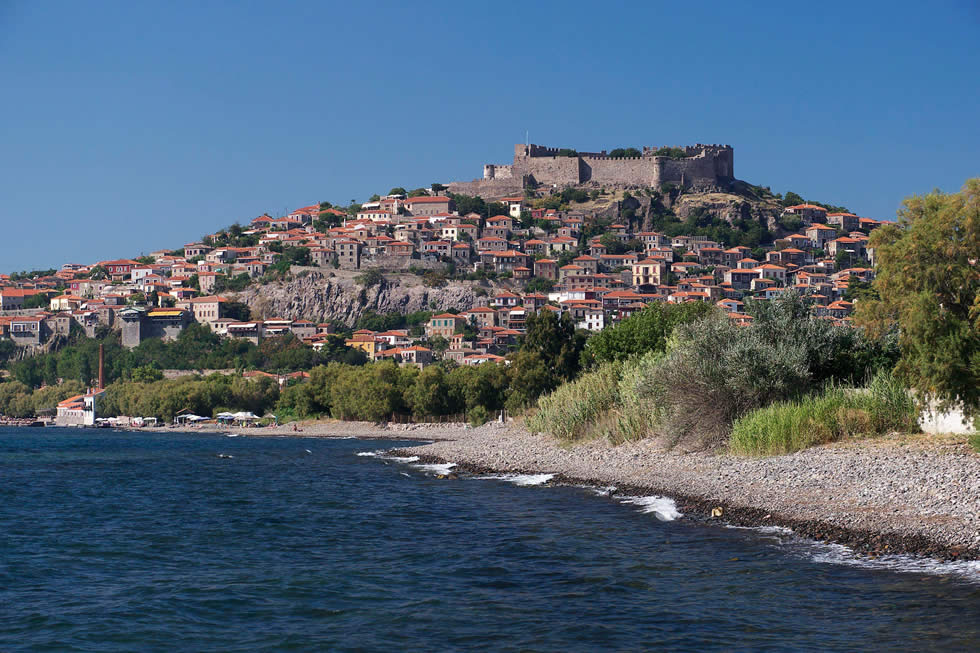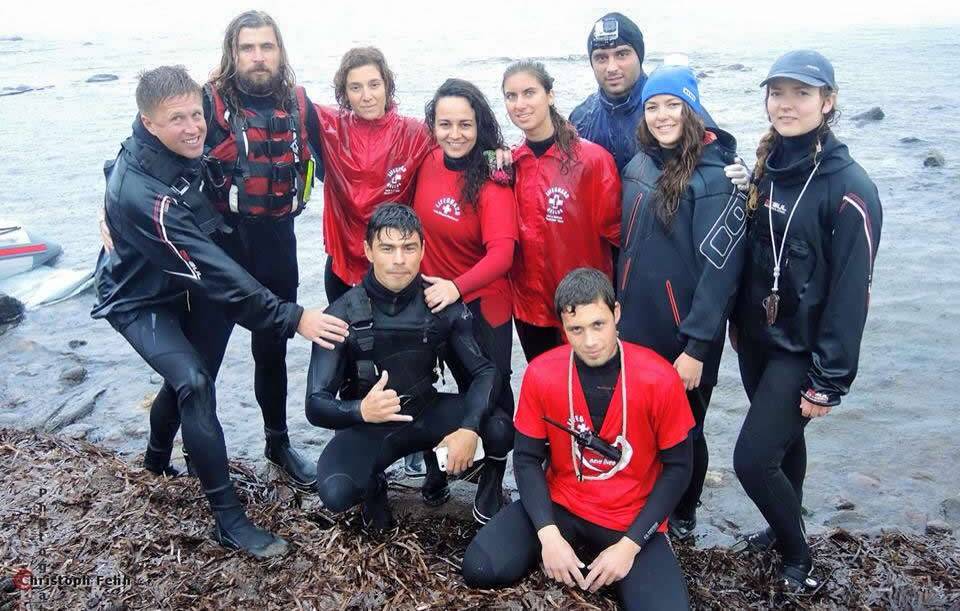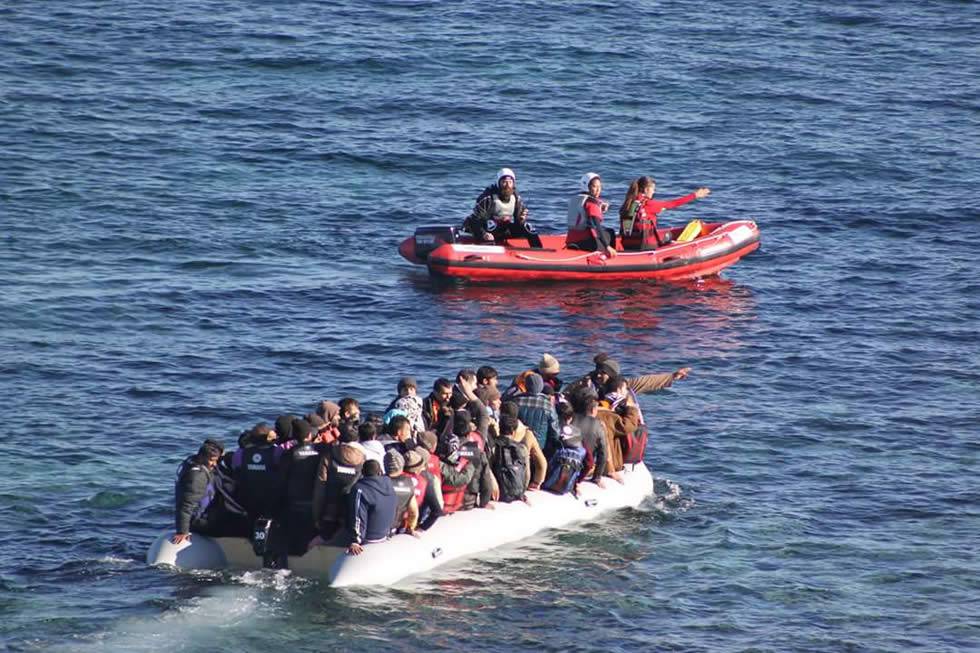Your life can change on a whim, or it can change on a Wednesday. In my case it happened on both.
The whim was to apply for a volunteer position on a team going to Greece as part of an effort to assist refugees incoming from Syria via Turkey. An average of 3,000 refugees per day were pouring into the Greek island of Lesvos over the Aegean Sea, and the local water safety organizations were overwhelmed and calling for international aid. One organization answering the call was the International Surf Lifesaving Association (ISLA) in conjunction with Lifeguards Without Borders (LWB), and they in turn put out a call out to any volunteers with lifeguarding or water rescue experience. I applied and was answered the next day.
By some small miracle, I was approved to travel abroad by work, though the approval came after the deadline set by ISLA. They told me all the slots on every team were full, but after a heartfelt plea a position opened on the first team to arrive in Lesvos. All of a sudden, I would be traveling to Greece in two weeks. By another small miracle, I would be accompanied by one of my very best friends and fellow lifesaver, Josh.

We were an odd pair, Josh and I; him dark, garrulous and eternally optimistic, and myself fair, more reserved, and an eternal skeptic. He was 22, married, and had a one year old boy already; I was 32, perennially single, and deathly afraid of any sort of commitment or binding ties. I had joined the military at 27 and some sort of arrested development occurred to my emotional life; I still loved the life of a young man, swimming free in the ocean of fate, playing my guitar to the universe, and serving my time before I could burst free into an open horizon.
That freedom would be heavily compromised by several events in my personal life shortly before departing to Greece. In two short weeks, I lived a year’s worth of emotions and departed for Greece with a leaden weight in my soul and the poison of self-loathing in my heart. I boarded the plane to Munich in San Francisco with acid in my throat. The idea was to go to Greece in order to help save refugees; I would need to do a little saving of myself as well.
On our first morning in Molyvos, the idyllic seaside fishing town that was our base in Lesvos, I felt recharged after a night of deep somnolence. I hadn’t fallen asleep so much as lost consciousness, and the deep slumber left me feeling refreshed and enlivened. I was one of the first volunteer lifeguards on the beach and spent some time with Robin, a Welsh boat master from Atlantic Pacific University in Wales. He took me over the particulars of the Red Mist, a light Rigid Hull Inflatable Boat (RHIB). It was a beautiful boat, with bright red gunwales, a flat deck, and a 30 horsepower outboard. It was stripped down compared to the clumsy RHIBs I was used to working with; a fully functional rescue platform. She had a very shallow draft and the engine could be swung up and down to allow it more maneuverability in shallow waters. There were sturdy rubber foot straps installed on deck to keep the crewman in place, and there was a solid steel cage around the rotor to prevent it from dinging on rocks or slashing persons in the water. She was beautiful, and I felt an excitement not unlike lust when I looked at her.
Robin’s thick accent, almost a brogue, gave me all these particulars and more as we walked around the Mist, starting the engine, popping off the top to examine the spark plugs, opening the watertight sea bags to check on the spare parts, the sea anchor, the lights and flares. He was not a large man, balding near his crown with jaw-length hair, and a graying scruff covering his face. He wore beat up jeans over sturdy boots, a red hooded sweatshirt with a blue vest, and a bandanna around his neck. I immediately got a sense of heavy focus from Robin, and from his casual expertise it was easy to see that he had spent a great deal of time on the water.

The rest of our volunteer group started trickling in, and Thanos took Josh and me up to the lighthouse. Thanos was a Greek lifeguard, a little shorter than me, with wispy black hair and a bit of a paunch. He had been a great help when we first arrived to the airport and my baggage hadn’t arrived on the plane. Now he was taking Josh and me up over the hill to the rusting lighthouse that served Limantziki Beach. Like everyone I met on Lesvos, I liked him immediately. He was a happy soul.
Limantziki was a small spit of land on the northeastern tip of Lesvos, just east of the picturesque seaside village of Molyvos. The beach was bordered to the west by a steep hillside and a cliff’s edge and on the east by a more gradually rolling hill country, but also rocky and inhospitable to boats. Up the western hill, it crested at a long, flat plateau with a summer villa a few hundred yards in-country. At the most seaward point of the plateau was the lighthouse, a rusted but sound white drum with a solar powered light. Its vantage was superior on the north coast and could be seen from miles in either direction.
Directly north, across the dark, tossing Aegean was Turkey itself. This was the land where the refugees were amassed, waiting for their chance to make the cold, perilous crossing.
Perhaps you think my choice of words is mere hyperbole, the creative license of a writer? Don’t be foolish. The crossing for the refugees was and is incredibly dangerous. The dinghies are pure rubber, with two inflatable gunwales and plywood fitted into the bottom to create a semi-stable platform. Their total length is about 10 meters long, with a width of 3-4 meters. They are powered from the back by a 15-20 horsepower outboard motor. The freeboard (length from the top of the gunwale to the water) is about two feet.
Not too flimsy a vessel, perhaps? Fill that boat with 50-60 men, women and children, all wearing counterfeit lifejackets. Now send it across a nine-mile, open ocean crossing with one unfortunate passenger nominated as the coxswain. What do the traffickers tell these poor souls?
“Aim for that small tan spot across the sea. Just keep going, someone will rescue you.”
What happens if someone slips over the side into the 60-degree water? Afghanistan is a landlocked nation and Syria isn’t much better. How many of them have never seen the ocean before, never mind swam in it?
Not all the vessels are rubber dinghies. Sometimes old wooden boats are sent across, but these have their own perils. The draft on one of the rubber dinghies is almost negligible – by the time the bottom of the boat is scraping rocks it is deep enough for an adult to stand in the water up to their knees. Most of the wooden boats have a deeper draft however, and when they hit the rocks can become stuck in up to five feet of ocean and start taking on water. Five feet of depth is nothing for an experienced swimmer, but it can be deadly for someone who cannot swim and whose feet barely touch the bottom. It can be impossible to navigate such water, especially with a baby or a child in your arms. It is almost certainly impossible to do with an adult in your arms.
On October 28th, 2015, that is exactly what happened. A double-decker wooden boat was coming into shore when it capsized on the rocks. The top level collapsed on to the bottom level, and the survivors were cast on to the rocks and the water. Of the 300 souls on board, about 60 died, many of them infants.

That was when Lifeguard Hellas decided to help. Their founders, Sbiros and Mania, had seen enough death and drowning on their own shores. They had run a free of cost lifeguarding school for years, and now they called upon many of their former students for help. Within days, they had assembled an all-volunteer team of lifeguarding professionals, and by November 8th they were set up on station at Limantziki Beach. There was one plastic shed for the lifeguards and two large canvas tents set up for the refugees. One tent was for the men and adolescent boys; another was for the women and children. There were three other plastic shelters set up at the base of the hill, which held extra clothes, food, and medical supplies. Next to the lifeguard shack was a rack for drying wetsuits, a bunch of outboard engines recovered from the refugee boats, and other miscellany. Slightly further down the beach rested the Red Mist and a broken down jet ski.
It wasn’t a professional outfit, with government funding; it was completely self-sponsored, a product of human beings who were moved to action by simple compassion. These were people done with wringing their hands on the sidelines of history, people who were refusing to sit back and let the events of the world unfold before them. Their hats were tossed into the ring; their hands were untied and put to action. I don’t know that this could have happened anywhere in the world but Greece.
That first morning, we conducted a sit-down meeting in one of the refugee tents. Robin, the Welsh boat master, briefed us on procedures with the Red Mist and on the verbiage we were to use when patching information along the hand-held radios. The inside of the tent had a few tables and large sacks of clothes, and the dank smell of permanent damp suffused the air. The floor was crisp plastic, and a sheen of moisture and mud, likely permanent, slicked it beneath our feet.
We sat in a circle in the dank tent absorbing Robin’s instruction and then broke for some familiarization and training. Josh and I took to the water, donning our wet suits and SAR gear. We swam a few hundred yards off shore, taking small dives into the cold, frigid water and checking out the undersea flora. It was fairly subdued compared to the hectic reef cities of Hawaii, but I admired the thickets of dark seaweed and one particularly proud giant clam.
Alex and Viche’t, our documentarians, flew a drone over our heads and filmed our swimming for posterity and perhaps for effect. We must have looked pretty cool out in the open water, all in black. I pointed towards Anna, a stunning beautiful Greek lifeguard who was taking to the dark sea in a bikini swimsuit at the beach’s edge. I thought she would make for better footage than either of us. She was mad to jump in with nothing but skivvies, but I discovered that the Greeks as a whole were nothing if not robust.
The usual serenity of diving was interrupted by the sudden beginning of hectic activity on the beach. We were waved in from the shore and swam beach-ward, shucking our fins in the shallow water. It wasn’t immediately clear what was going on-with the bilingual passings down of information – things rarely were. I asked Panos what was happening.
“There is a big boat,” he said, his head dipping.
Stay tuned to part 2, coming soon in Wilderness Medicine Magazine!